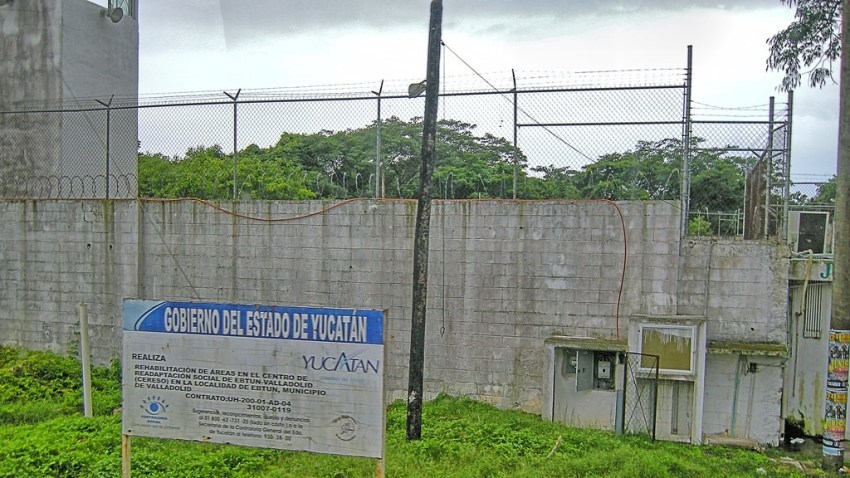Last weekend, Mexico’s most-wanted drug lord, Joaquin “El Chapo” Guzman,
was arrested after spending 13 years as a fugitive since escaping from prison. In an email interview, David A. Shirk,a political science professor and director of the Justice in Mexico Project at the University of San Diego, explained the state of Mexico’s prison system today and whether a Mexican prison could hold Guzman now.
WPR: What is the overall state of Mexico’s prison system in terms of its ability to humanely and securely house prisoners?
David A. Shirk: Like other prison systems around the world, Mexico's prison system suffers from significant problems, including overcrowding, corruption, poor security and sometimes inhumane conditions. Mexico's national prison overcrowding rate has been fairly consistent at about 20 percent over capacity, although this varies significantly depending on the state and prison. Part of the problem is that Mexico's traditional, semi-inquisitorial criminal justice system relies heavily on “pretrial” detention to prevent suspects from fleeing justice, which frequently results in mixing accused criminals with those who have been sentenced, among other problems. Also worrying is the large number of prison breaks that have occurred in the past several years, which has allowed convicted organized crime figures to get back into action.
WPR: What has the administration of Mexican President Enrique Pena Nieto done to improve the situation?
Shirk: Unfortunately, prison reform has not been on the front burner in Mexico for decades, even though it poses a looming crisis. The past several years have seen a dramatic increase in Mexico's incarceration rate, due to a growing number of detentions and especially organized crime arrests. Pena Nieto has pledged to change his approach to dealing with organized crime by focusing less on the dismantling of criminal enterprises and more on providing greater overall public security through more centralized, coordinated law enforcement efforts. Fewer arrests may help ease the growing burden on Mexico's prison system, but it will change little about the existing problems in Mexico's prison system noted above. What hold greater promise are the broader justice sector reforms that are being implemented to overhaul Mexican criminal procedure in a way that will ideally provide alternatives to prison terms for dealing with criminal behavior. For example, under Mexico's traditional criminal justice system, a serious automobile accident could land you in jail, but under the new reforms the penalty would more likely involve a hefty fine and restitution to any victims. This kind of alternative sentencing mechanism, along with the introduction of alternative dispute resolution procedures, such as mediation, can help to greatly relieve the burden on Mexico's prison system and provide a more just and positive approach to resolving problems of delinquency.
WPR: Will the return to prison of an infamous escapee, Joaquin “El Chapo” Guzman, provide any further leverage for change?
Shirk: Chapo Guzman escaped from prison 13 years ago thanks to either corruption or lax prison standards, depending on the particular version of the Chapo myth that one prefers. There is presently much debate about whether Mexico's prisons are strong enough to hold him today, but this debate has not yet resulted in a broader discussion of what can be done to improve criminal detention in Mexico. While alternative sentencing may help to deal more effectively with individuals who commit lesser crimes, there is no doubt that Mexico's prison system has significant weaknesses that could allow someone like Guzman to continue operating or even to re-escape from custody. Otherwise, the best option to manage individuals like Guzman has been to seek extradition to the U.S. criminal justice system, which—despite its many flaws—is less vulnerable to escapes and corruption than Mexico's system.

